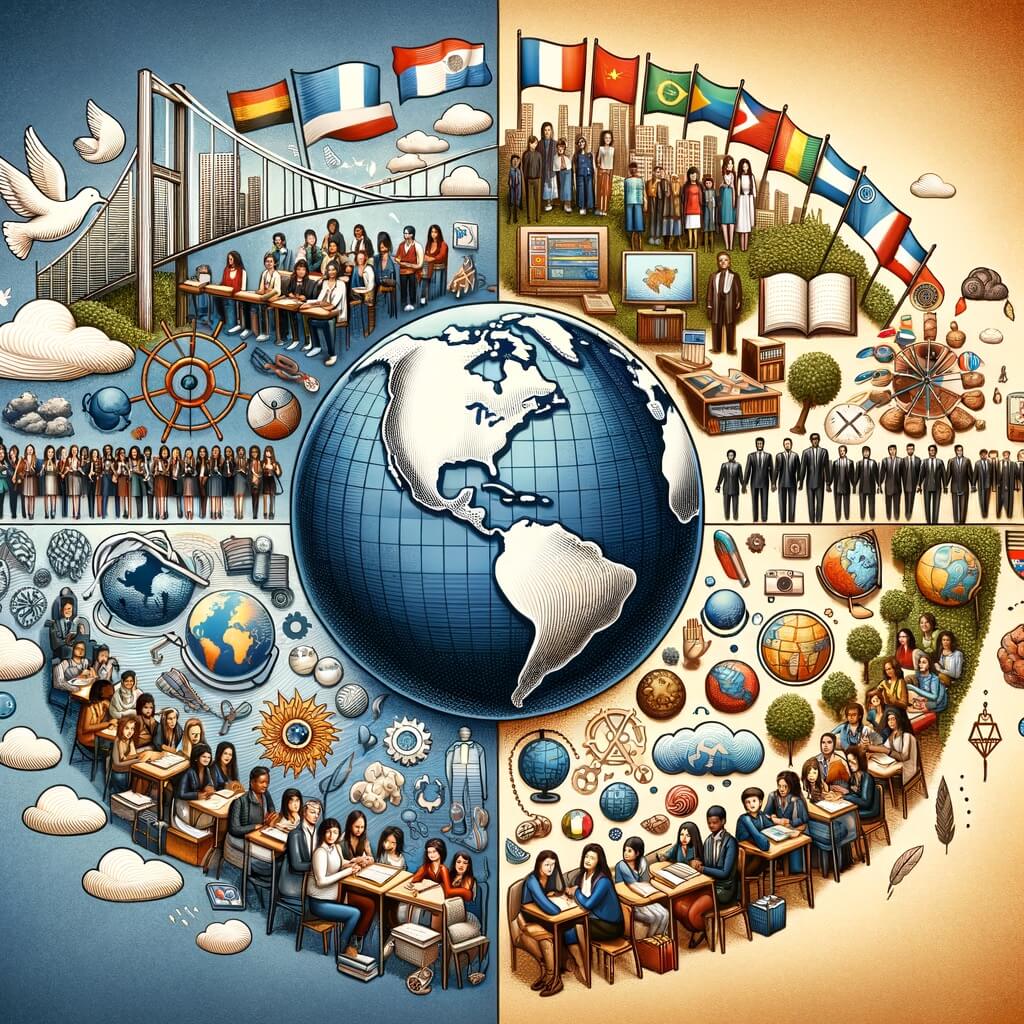Should you study in China or Russia?
In a world where the drums of war often drown out voices of peace, the pursuit of strength and power is seen as the primary means to deter aggression. However, there exists a more sustainable and profound solution—education. The transformative power of learning not only enriches minds but also has the potential to elevate societies above conflicts. Through education, particularly international and cultural exchanges, we can foster understanding and respect that transcend political disputes.
The Power of Strength and the Need for More
While military strength is undeniably necessary to deter or stop aggressors, it is not a sustainable solution for peace. True security and stability come not just from the ability to defend against an attack but from eliminating the underlying motivations for conflicts. This is where education plays a crucial role. It cultivates a battle of a different kind—against ignorance, prejudice, and fear.
Education as the Path to Rising Above Conflict
Education offers a unique battlefield, one that involves the challenge within ourselves to overcome biases and expand our horizons. As noted:
- Humanizing Opponents: Educational exchanges allow individuals from conflicting nations to meet, collaborate, and learn from each other, helping to dismantle longstanding prejudices and reduce the dehumanization that often accompanies conflicts.
- Maintaining Open Channels: Cultural and educational engagements serve as important diplomatic channels, keeping lines of communication open even when political relations are strained. These interactions ensure that even during tensions, there are avenues available for dialogue and understanding.
- Fostering Mutual Respect: Through exposure to different cultures and academic systems, individuals begin to appreciate the intellectual and cultural contributions of others, fostering respect that can overshadow political disagreements.
- Long-term Benefits: The benefits of educational exchanges are not immediate but they are enduring. By influencing the next generation of leaders and thinkers, these programs can change the future landscape of international relations.
- Continued Collaboration: Shared interests in areas such as science, medicine, and technology often keep countries working together despite political differences. These collaborations not only yield practical benefits but also build interdependencies that can make conflict less appealing.
Broadening Perspectives Through Global Engagement
The idea that openness to new experiences and ideas is essential for personal and collective progress is well supported by the benefits of studying abroad and engaging with diverse cultures. This exposure is crucial in several ways:
- Personal Growth and Perspective: Individuals who study or travel abroad gain invaluable experiences that foster personal development and independence, equipping them with enhanced problem-solving skills.
- Open-Mindedness and Awareness of Errors: By confronting and considering different viewpoints, individuals can challenge and refine their own beliefs and assumptions, leading to a broader, more accurate understanding of the world.
- Challenging Ideas and Progress: The exchange of ideas, much like the trade of goods, allows for intellectual advancements. Ideas can be debated, refined, and spread, contributing to scientific and societal progress.
- Mutual Benefits of Idea Exchange: Just as trade benefits economies, the exchange of cultural values and educational insights enhances the global intellectual landscape, fostering solutions that are more effective and universally applicable.
Conclusion: The Role of Education in Promoting Peace
The notion that education can serve as a powerful tool to transcend military and political conflicts is not just idealistic but practical. By embracing educational and cultural exchanges, societies can build a foundation of mutual respect and understanding that stands as a bulwark against the forces of division and war. Through the lens of education, we not only see the world as it is but imagine what it could become when we learn from each other and grow together. This is the path to durable peace and shared prosperity.
